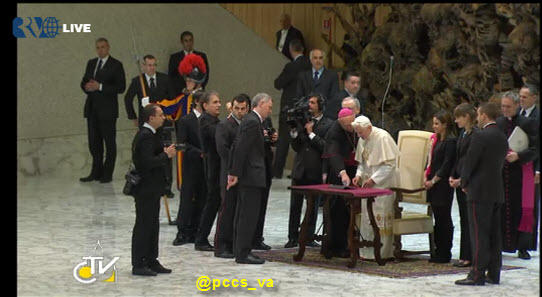This morning I find myself marked by a certain sorrow; the weather mirrors my mood well. I had hoped - rather uncharacteristically - this nation would prove itself to be an enlightened one, but half of our fellow citizens have shown that they live in darkness with their vote against life and religious liberty.
Edmund Burke (d. 1797) wisely said, "Those who do not know history are doomed to repeat it." Last night we saw the truth of his words lived out in the American people, a people who largely do not know the present, let alone the past. As proof, consider this staggering fact: The most Googled question yesterday was, "Who is running for President?"
One of my professors in college correctly told us, on numerous occasions that historians are the best people to indicate what the future holds, not in the sense of fortune-telling but in the sense of reading the signs of the times. Because historians study the events of the past - including the circumstances and motives involved - they can become, if they are astute, "experts" on the human person and what motivates him on a collective basis.
Let me be clear: I do not believe President Obama is The Anti-Christ, nor I do believe the arrival of the End Times are heralded by his election. I do believe, however, that his election - and particularly his re-election - will mark the beginning of the end of the Republic.
Five years ago I began warning my students and others who would listen where the election of Barack Obama as President of the United States of America would lead. History has seen political leaders arise through sheer force of charisma before, and it has never ended well.
At the time, many of my students and their parents laughed at me and mocked me. Last night their Facebook posts and Twitter feeds indicate they now see the truth of my words and, with me, now fear for the future of the Republic.
For some hours now I have been struggling to put my thoughts into words and still cannot do so. Father John Trigilio, however, has written
an excellent post that echoes my very thoughts.
As a student of history, what do I see as I look to the coming months and years?
"Gay marriage" is now legal in nine of the fifty States. The push for its legalization in other States and on a federal level will not end or slow down.
Here in Illinois, we have seen the effects not of legalized "gay marriage," but of civil unions. After legalizing same-sex civil unions, the State forced Catholic Charities out of foster care and adoptions. The same has happened in Boston and will continue to happen with increasing speed in other cities and States.
Laws were enacted some years ago to classify certain attacks as "hate crimes," many of which include attacks on those who take part of the gay subculture. Though such laws have unfortunately not included attacks against people of faith as hate crimes, I do not deny or dispute the good such laws can do.
New laws, however, will soon be enacted that will classify the teachings of the Church on homosexuality, contraception, abortion, and marriage as "hate speech." Such laws will be the beginning of a concerted and purposed persecution of the Church; the government will seek to silence the Church by removing her pastors.
Once her pastors are silenced or removed, the rights of the Church and of the faithful will be increasingly curtailed and taken away. Once the freedom of religion is taken away, every other freedom will also be removed.
I know that, because of these words, some will accuse me of inciting hate. Such is not my intent and I have written nothing hateful. Such laws have already been passed in Canada and in Great Britain, and the consequences have not always been pleasant.
I hope very much that I am wrong, but looking at past events and
the present threats to religious liberty in these United States, this trajectory seems clear.
Writing this morning to President Obama, Timothy Cardinal Dolan, Archbishop of New York and President of the United States Conference of Catholic Bishops, congratulated the President and offered assurances of his prayers, and of those of his brother Bishops:
In particular, we pray that you will exercise your office to pursue the common good, especially in care of the most vulnerable among us, including the unborn, the poor, and the immigrant.We will continue to stand in defense of life, marriage, and our first, most cherished liberty, religious freedom.We pray, too, that you will help restore a sense of civility to the public order, so our public conversations may be imbued with respect and charity toward everyone.
I pray for the same and every day I remember the President in my prayers.
Let us pray for those elected to public office in this country and in every country:
Almighty ever-living God,in whose hand lies every human heart and the rights of peoples,look with favor, we pray,on those who govern with authority over us,that throughout the whole worldthe prosperity of peoples,the assurance of peace,and freedom of religionmay through your gift be made secure.Through our Lord Jesus Christ, your Son,who lives and reigns with you in the unity of the Holy Spirit,one God, for ever and ever.Amen.
- Roman Missal
Saint Thomas More, pray for us!
Update: Simply Fulfilled follows up on this post with a good list of prayer needs for the nation and an encouragement not to lose hope.











